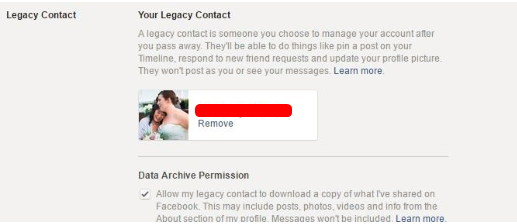How To get Rid of Facebook Account: Current
events might have you considering a break from Facebook. That's not an
alternative for every person; in that case, simply tighten up your
account settings. But if
having your information extracted for political purposes without your
consent sketches you out, there are methods to separate on your own from
the huge social network.
If you're ready for a social media break, here's the best ways to remove Facebook.
How To get Rid of Facebook Account
Deactivating
Facebook gives you 2 choices: two options: deactivate or erase
The very first couldn't be easier. On the desktop computer, click the drop-down menu at the top-right of your screen and select settings. Click General on the leading left, Edit alongside "Manage Account" Scroll down and also you'll see a "Deactivate My Account" web link near the bottom. (Right here's the direct link to use while visited.).
If you're on your mobile device, such as utilizing Facebook for iphone, likewise most likely to settings > Account settings > General > Manage Account > Deactivate.
Facebook
does not take this gently - it'll do whatever it can to maintain you
around, consisting of emotional blackmail regarding what does it cost?
your friends will certainly miss you.
As such, "Deactivation" is not the like leaving Facebook. Yes, your timeline will certainly disappear, you won't have accessibility to the site or your account through mobile applications, friends can't upload or contact you, and you'll lose accessibility to all those third-party services that make use of (or require) Facebook for login. Yet Facebook does not remove the account. Why? So you can reactivate it later on.
Simply if anticipated re-activation isn't in your future, you ought to download a copy of all your data on Facebook - posts, photos, videos, chats, etc.-- from the settings menu (under "General"). What you discover may stun you, as our Neil Rubenking figured out.
Account Removal
As such, "Deactivation" is not the like leaving Facebook. Yes, your timeline will certainly disappear, you won't have accessibility to the site or your account through mobile applications, friends can't upload or contact you, and you'll lose accessibility to all those third-party services that make use of (or require) Facebook for login. Yet Facebook does not remove the account. Why? So you can reactivate it later on.
Simply if anticipated re-activation isn't in your future, you ought to download a copy of all your data on Facebook - posts, photos, videos, chats, etc.-- from the settings menu (under "General"). What you discover may stun you, as our Neil Rubenking figured out.
Account Removal
To fully erase your Facebook account forever and ever, go to the Delete My Account page at https://www.facebook.com/help/delete_account. Simply be aware that, each the Facebook data use policy "after you eliminate info from your account or erase your account, copies of that details may remain viewable in other places to the extent it has been shown to others, it was or else dispersed pursuant to your privacy settings, or it was replicated or saved by various other users.".
Translation: if you created a comment on a close friend's standing update or photo, it will remain even after you erase your personal profile. A few of your posts as well as images might spend time for as long as 90 days after deletion, as well, though simply on Facebook web servers, not live on the website.
Deletion in support of Others
If you intend to notify Facebook about an individual you understand is under 13, you could report the account, you narc. If Facebook can "sensibly confirm" the account is made use of by someone underage-- Facebook prohibits youngsters under 13 to abide by government legislation-- it will certainly erase the account quickly, without notifying any individual.
There's a separate form to request elimination of make up individuals that are clinically incapacitated and also thus unable to utilize Facebook. For this to work, the requester must prove they are the guardian of the person concerned (such as by power of attorney) along with deal a main note from a doctor or clinical facility that define the incapacitation. Redact any kind of details needed to maintain some personal privacy, such as clinical account numbers, addresses, and so on.
If a user has actually passed away, a legacy call-- a Facebook buddy or relative that was designated by the account proprietor prior to they died-- could obtain accessibility to that person's timeline, as soon as authorized by Facebook. The heritage contact might should give a connect to an obituary or other documents such as a death certification. Facebook will "memorialize" the page so the departed timeline lives on (under control of the legacy contact, that can not upload as you), or if chosen, remove it.
Mark a certain heritage call person to handle your account after your death. You could discover that under settings > General > Manage Account > Your Legacy Contact. Once you established one up, you'll get a notification every year from Facebook to double check that the call must stay the exact same, unless you opt out of that. You can likewise take the added step of seeing to it that after you die, if the tradition contact does report you to Facebook as departed, your account obtains deleted




0 comments:
Do you find this post helpful? Share your thoughts in the comments form below!
Post a Comment